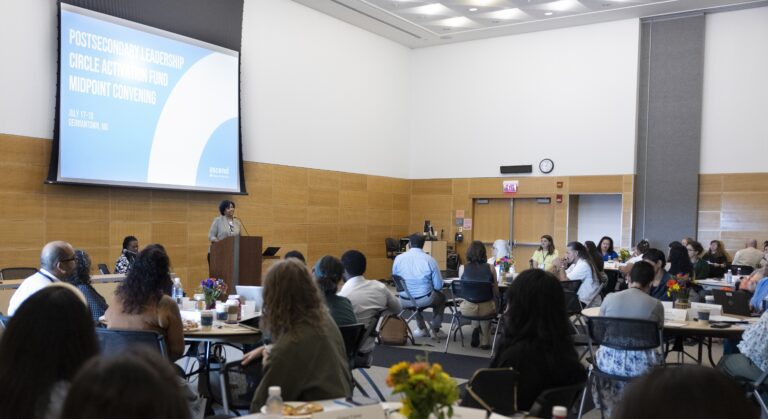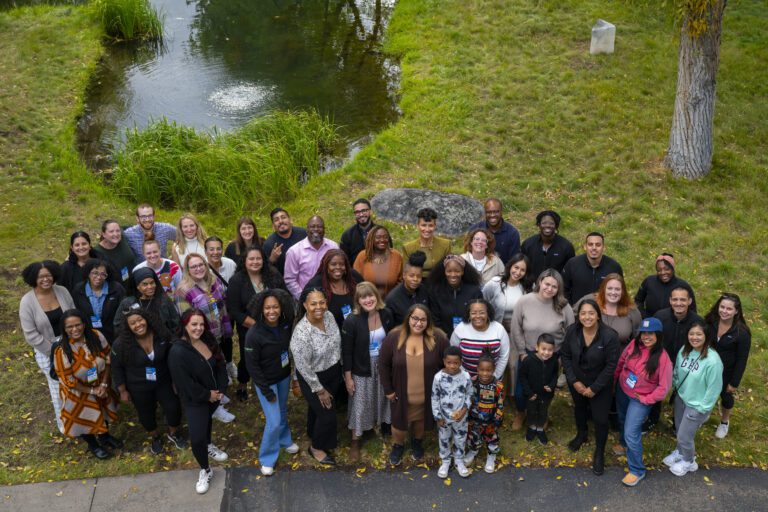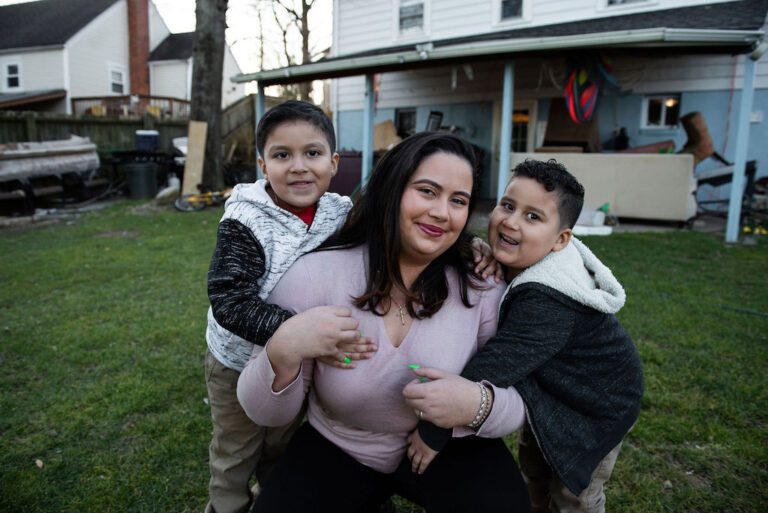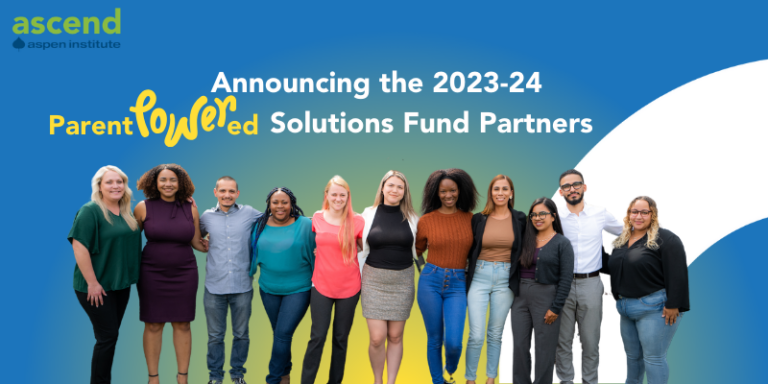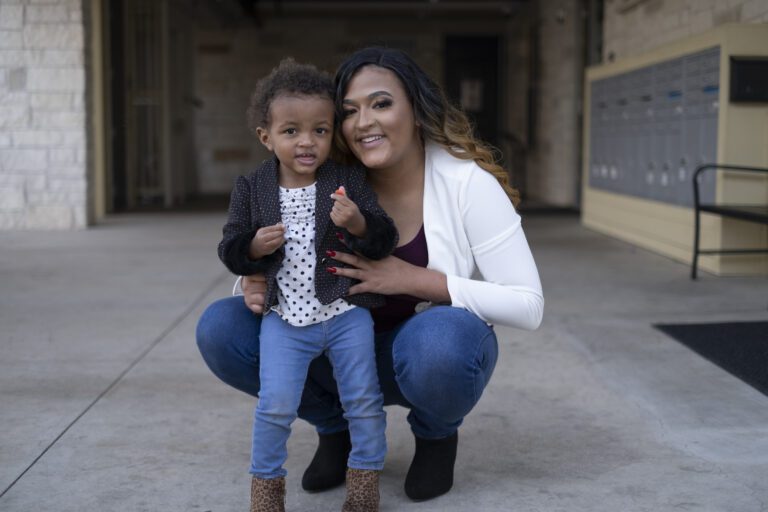4 Community Colleges Partner with Ascend to Accelerate Student Parent Success
Ascend at the Aspen Institute’s Postsecondary Leadership Circle Activation Fund accelerates expansion of student parent supports at four community colleges.
Washington, DC – Today, Ascend at the Aspen Institute announced that four community colleges from across the United States have been selected as partners to its Postsecondary Leadership Circle Activation Fund. Ascend’s new capacity-building fund provides $75,000 in financial support, as well as expert technical assistance to accelerate institutional investment into expanding effective, equitable, and culturally-informed student parent supports. During this two-year effort, the four partners will leverage a cross-campus taskforce to identify, plan, and implement two strategies that align with their current efforts and will contribute to increasing student parent persistence and attainment with a special focus on single mothers.
“Building pathways for every family to flourish across generations is central to Ascend’s mission, and we know that when student parents and single mothers succeed, their families and communities succeed as well,” said David Croom, associate director of Ascend’s Postsecondary Success for Student Parents (PSP) initiative. “Community colleges are key to increasing student parent well-being and economic mobility, and we are proud to partner with the four selected institutions which are actively innovating their practices to ensure that student parents on their campuses are primed for success.”
The four institutions partnering with Ascend for the launch of this fund are:
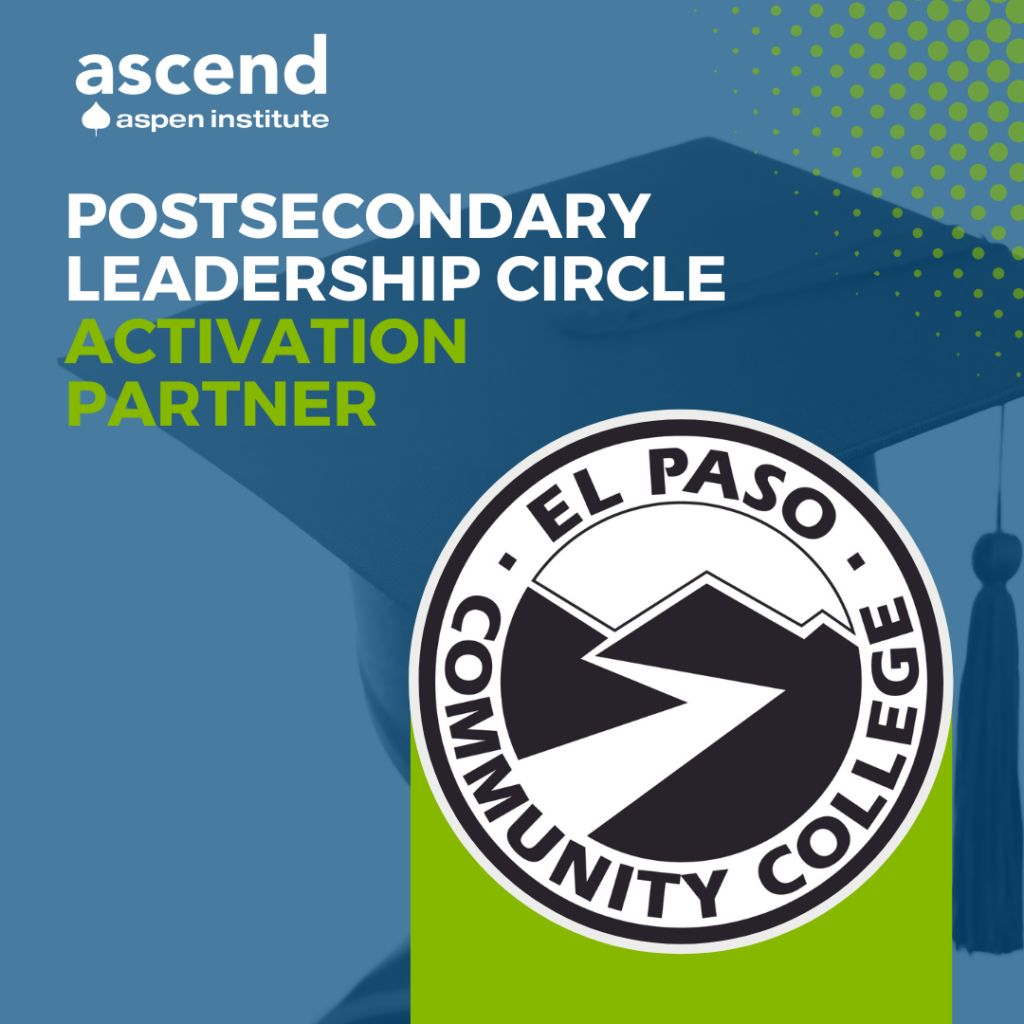
El Paso Community College (El Paso, TX) will enhance its current student parent data collection and analysis and design a systemic two-generation (2Gen) approach to student parent support. Recognizing gaps in student parent identification and the need to centralize data, the College will establish indicators in its student information system, Banner, and add students’ parenting status at the time of entry-admission based on Apply Texas Application data. Additionally, the College will develop a plan to map out touchpoints to identify and hear from student parents throughout their educational journeys and perform ongoing data analysis that aids in designing interventions to increase student parent persistence and completion. Beyond data, the College will conduct an institutional analysis using a 2Gen framework that leads to policy and practice changes and additional supports that benefit student parents and their families.
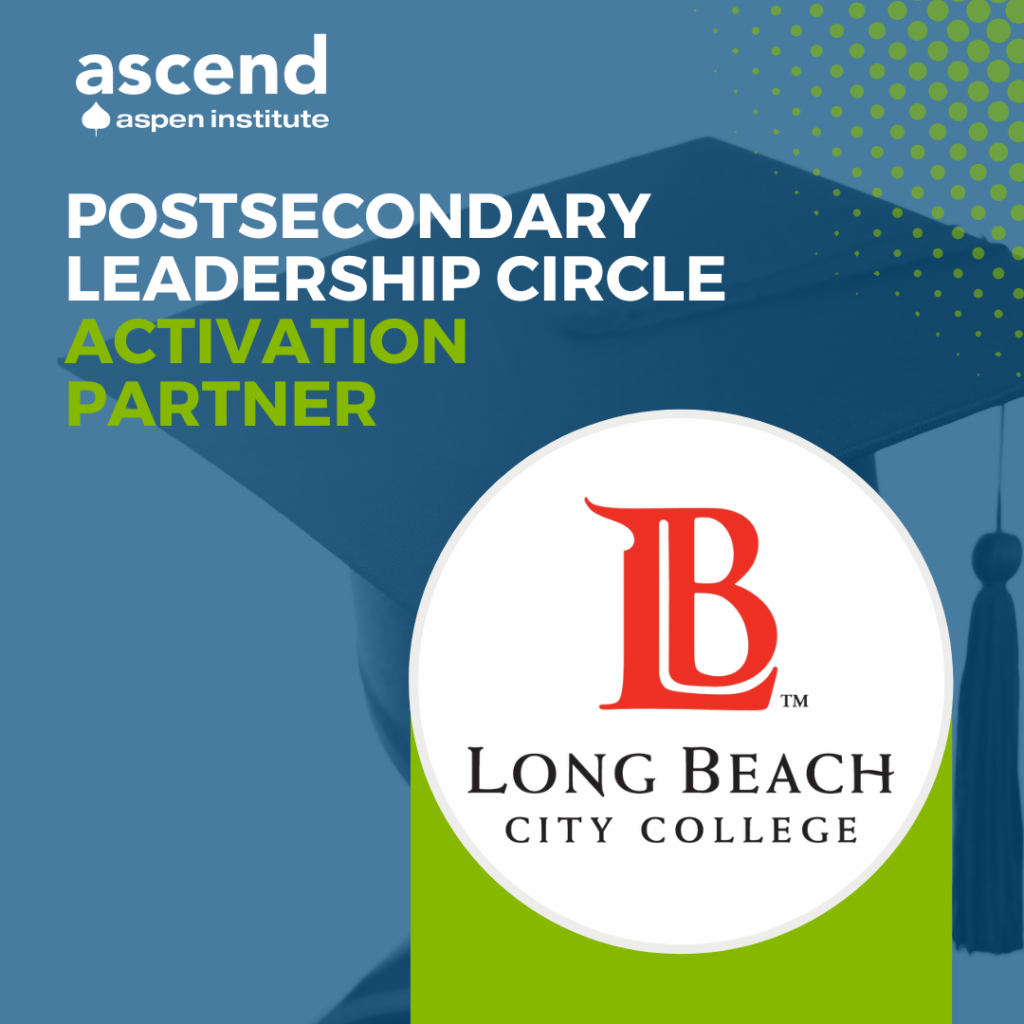
Long Beach City College (Long Beach, CA) will expand on-campus childcare services, develop a one-stop for student parent resources, and create a multimedia outreach campaign targeted to student parents. The College will evaluate different child care expansion options like extending service hours and increasing children served and then plan and implement accordingly. The College will also design and launch a one-stop for student parent support, compiling resources and services in one location for easier accessibility and increased awareness. Additionally, a multimedia outreach campaign will be developed and launched to increase the sense of student parent belonging, connect student parents to one another, raise awareness around institutional supports, and inform student parents of their Title IX protections.
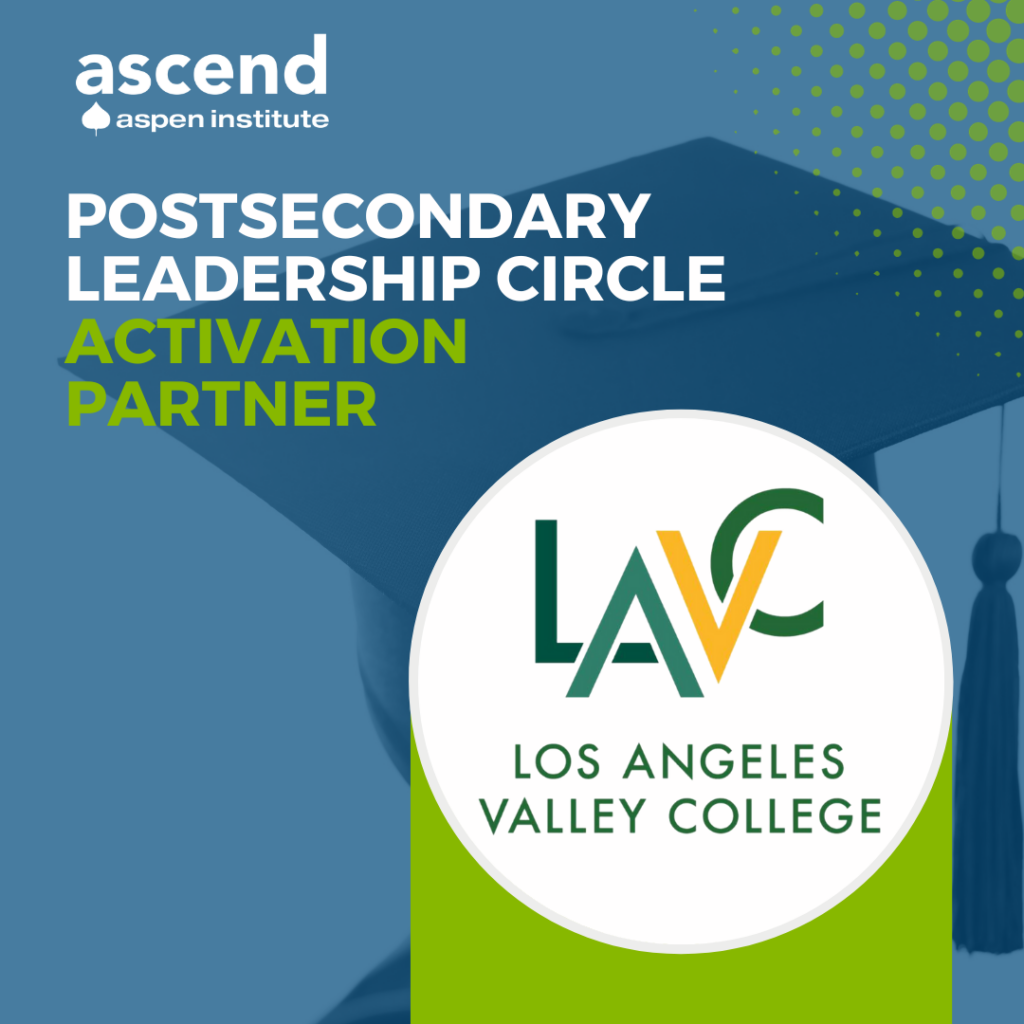
Los Angeles Valley College (Valley Glen, CA) will develop an ongoing process that identifies pregnant and parenting students; monitors and analyzes their outcomes and potential barriers to success; and designs and improves interventions to increase their persistence and completion rates. One aspect of this process will be a survey campaign that seeks to understand how to remove access barriers and increase student parent use of institutional supports for which they are eligible. LAVC will partner with affiliated research faculty at UCLA’s California Policy Lab and Pomona College on survey design and analysis.
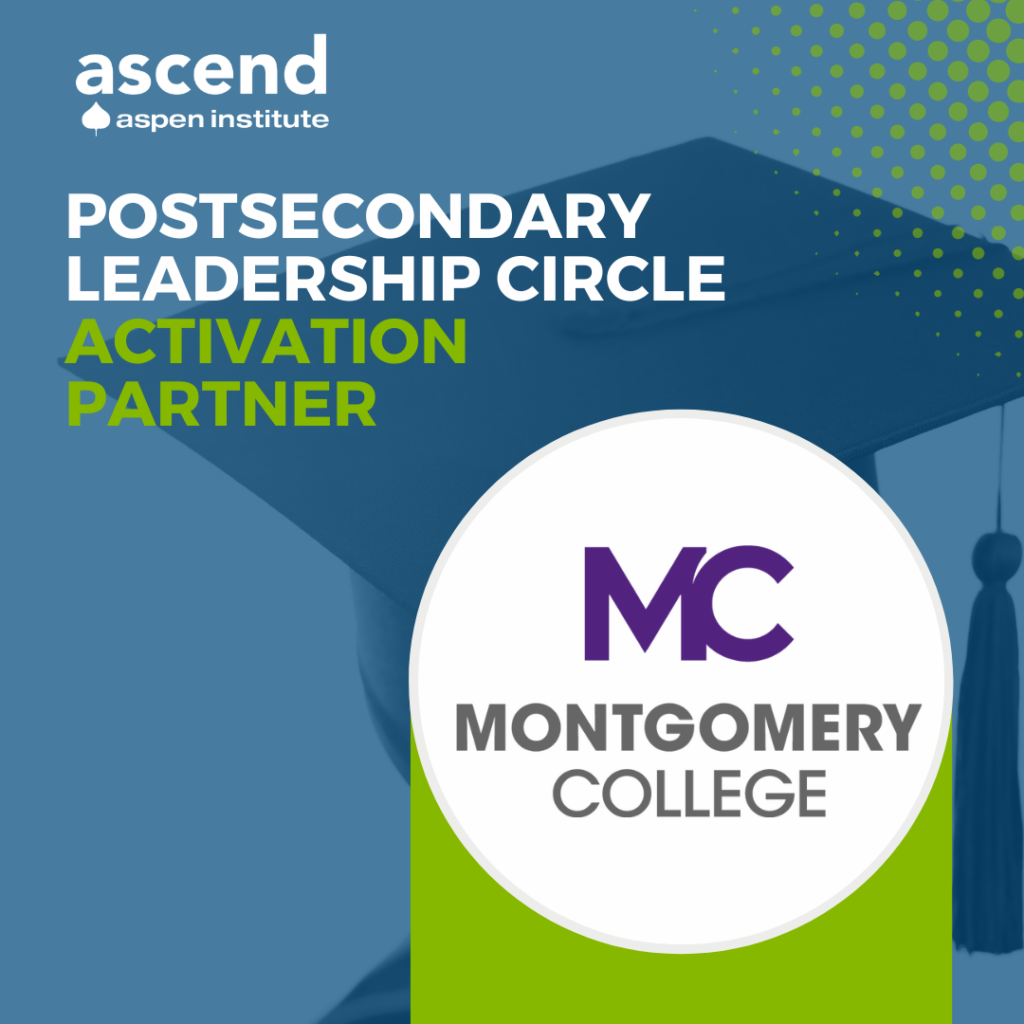
Montgomery College (Montgomery County, MD) will develop and implement annual professional development curriculum and supplemental materials for all staff and faculty related to student parent Title IX protections and best practices, and will leverage capacity of existing software to identify and collect data on parenting students more systematically. The College believes that annual professional development for faculty and staff will ensure uniform knowledge of effective strategies for creating a welcoming environment, and develop a sense of belonging for families on campus.
Nationally, one in five college students – close to 4 million – is a parent. Almost half of all U.S. student parents attend community college, and 70% of these parents are mothers – making institutions like El Paso Community College, Long Beach City College, Los Angeles Valley College, and Montgomery College uniquely positioned to increase student parent outcomes, especially for single mothers, who represent about 2 in 5 of all student parents.
Investing in student parent, and single mother, postsecondary success immediately benefits families, communities, and the economy. Student parents are especially likely to benefit from the earning gains experienced by college graduates: parents who complete college degrees double their lifetime income. That is why Ascend, with support from ECMC Foundation, created the Postsecondary Leadership Circle Activation Fund.
“We’re excited to partner with Ascend at the Aspen Institute in support of the Postsecondary Leadership Circle Activation Fund,” said Amber Angel, program officer at ECMC Foundation. “Single mother students are dedicated learners with tremendous talent and potential. We look forward to the data-informed innovations that will result from bringing these four colleges together to share learnings and successful practices.”
“The value of this fund is priceless. Now more than ever we have to better understand the students that we are serving and work to eradicate the barriers that stand in the way of postgraduate success,” said Dr. Kimberly M. Lowry, director of leadership initiatives for the Aspen Institute College Excellence Program. “Developing promising practices that can increase access and success for student parents attending community colleges has the potential to create a vehicle towards completion for a student group that often is overlooked and misunderstood.”
“It is very exciting to see that community colleges will be supported through the Postsecondary Leadership Circle Activation Fund to provide intentional and focused initiatives designed specifically for students who are parents,” said Dr. Maria Harper-Marinick, past chancellor of Maricopa Community College District in Arizona, 2015 Aspen Institute Ascend Fellow, and a senior fellow with the Aspen Institute College Excellence Program. “Many women attending community colleges are parents, some single mothers, and their needs for programs and support services are different from more traditional students. I believe that the investments through this fund will increase persistence and success outcomes at the participating colleges.”
Since 2018, Ascend’s Postsecondary Success for Parents (PSP) initiative has been a key driver in building a student parent movement – an expansive, nationally-coordinated effort to advance the development of innovative solutions that provide greater postsecondary access, affordability, and success for parents. Ascend focuses on the more than four million student parents enrolled in postsecondary pathways – a group that should inform and strengthen higher education’s equity agenda. The Postsecondary Leadership Circle Activation Fund is central to this effort.
###
Ascend at the Aspen Institute is a catalyst and convener for diverse leaders working across systems and sectors to build intergenerational family prosperity and well-being by intentionally focusing on children and the adults in their lives together. We believe in the power of co-creation. We are a community of leaders — well-connected, well-prepared, and well-positioned — building political will that transforms hearts, minds, policies, and practices.
The Aspen Institute is a global nonprofit organization committed to realizing a free, just, and equitable society. Founded in 1949, the Institute drives change through dialogue, leadership, and action to help solve the most important challenges facing the United States and the world. Headquartered in Washington, DC, the Institute has a campus in Aspen, Colorado, and an international network of partners. For more information, visit www.aspeninstitute.org.
###
Contact: Kathy Lugo
Communications Officer
Ascend at the Aspen Institute
katherine.lugo@aspeninstitute.org
Related Posts



